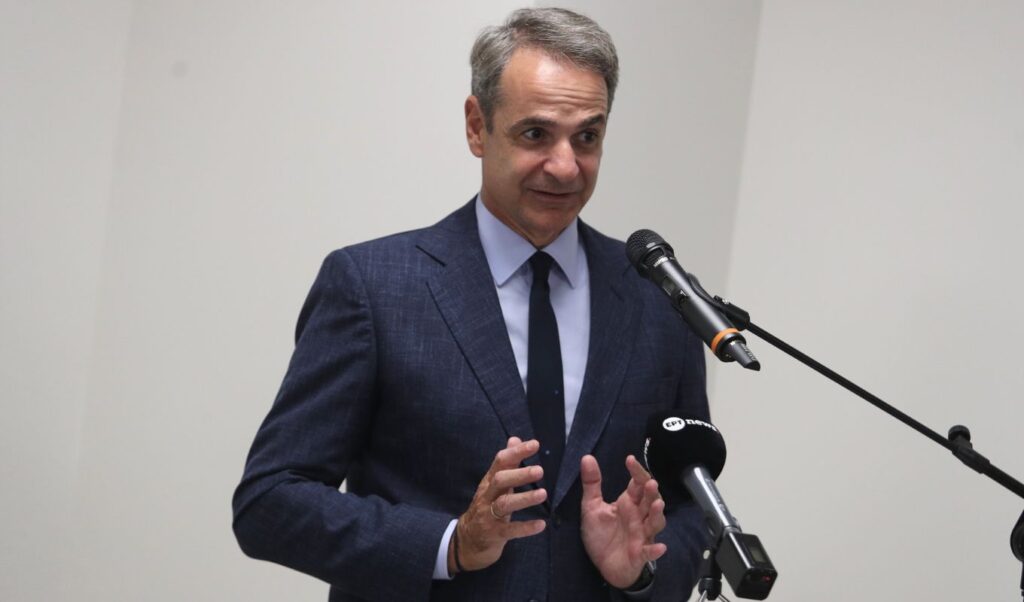Athens is ready to take the initiative for the formation of a new multilateral cooperation scheme in the Eastern Mediterranean, with the participation of Greece, Cyprus, Egypt, Turkey and Libya, as announced by Prime Minister Kyriakos Mitsotakis during the foreign policy debate in Parliament. A central position on the initiative’s agenda will be the issue of Maritime Zones, which constitutes a chronic point of friction between coastal states and simultaneously an obstacle to exploiting the region’s energy deposits.
Read: Gouleka meets with Mitsotakis: The plan for contacts with entities and Balkan states
Athens’s proposal involves forming a 5×5 type scheme, with the participation of five coastal states in the region -Greece, Cyprus, Egypt, Turkey and Libya- and with five thematic axes: Migration, marine environment protection, connectivity, Maritime Zone delimitations and civil protection. The Foreign Ministry will undertake to explore the possibility and prospects of such a scheme and to what extent it could have a permanent character. The goal, according to government sources, is to build communication bridges with all states in the region, even with those with which there are differences, always based on International Law. It is estimated that this initiative becomes more necessary than ever due to major geopolitical realignments. With this initiative, Athens reaffirms its longstanding commitment to trilateral and multilateral regional cooperation schemes with regional states facing common challenges.
Greece as a pillar of stability in Southeast Europe and the Eastern Mediterranean
As government sources emphasize, Greece remains a stable pillar of security and stability in Southeast Europe and the Eastern Mediterranean, approaching regional developments with a spirit of understanding and respect for International Law. It has, the same sources stress, a strong diplomatic footprint, upgraded international position, stable economy and reliable defense capabilities, elements that allow it not only to respond to challenges, but also to take dialogue initiatives with all neighboring states. “Greece not only does not fear, but seeks understanding with all neighboring states,” they emphasize. The announcement of this move by Kyriakos Mitsotakis was not made in a neutral time context, but during a period of increased diplomatic activity in Washington, focusing on developments in the Eastern Mediterranean. According to information, initiatives toward strengthening communication channels between Greece, Turkey, Libya and Egypt appear to have also been undertaken by Massad Boulos, special advisor to the State Department on Arab and African affairs and son-in-law of the American president.
Mr. Boulos is reported to have conducted successive contacts with representatives of all four countries aimed at encouraging dialogue to overcome differences, primarily in the field of Maritime Zones. It is also worth noting that the Prime Minister met with Mr. Boulos on September 26, on the sidelines of the 80th UN General Assembly in New York. In any case, the initiative now announced by Athens indicates activity in the coming period. At the same time, the government staff positively evaluates the Parliament debate on foreign policy, estimating that it emerged as a field of superiority against the opposition.




